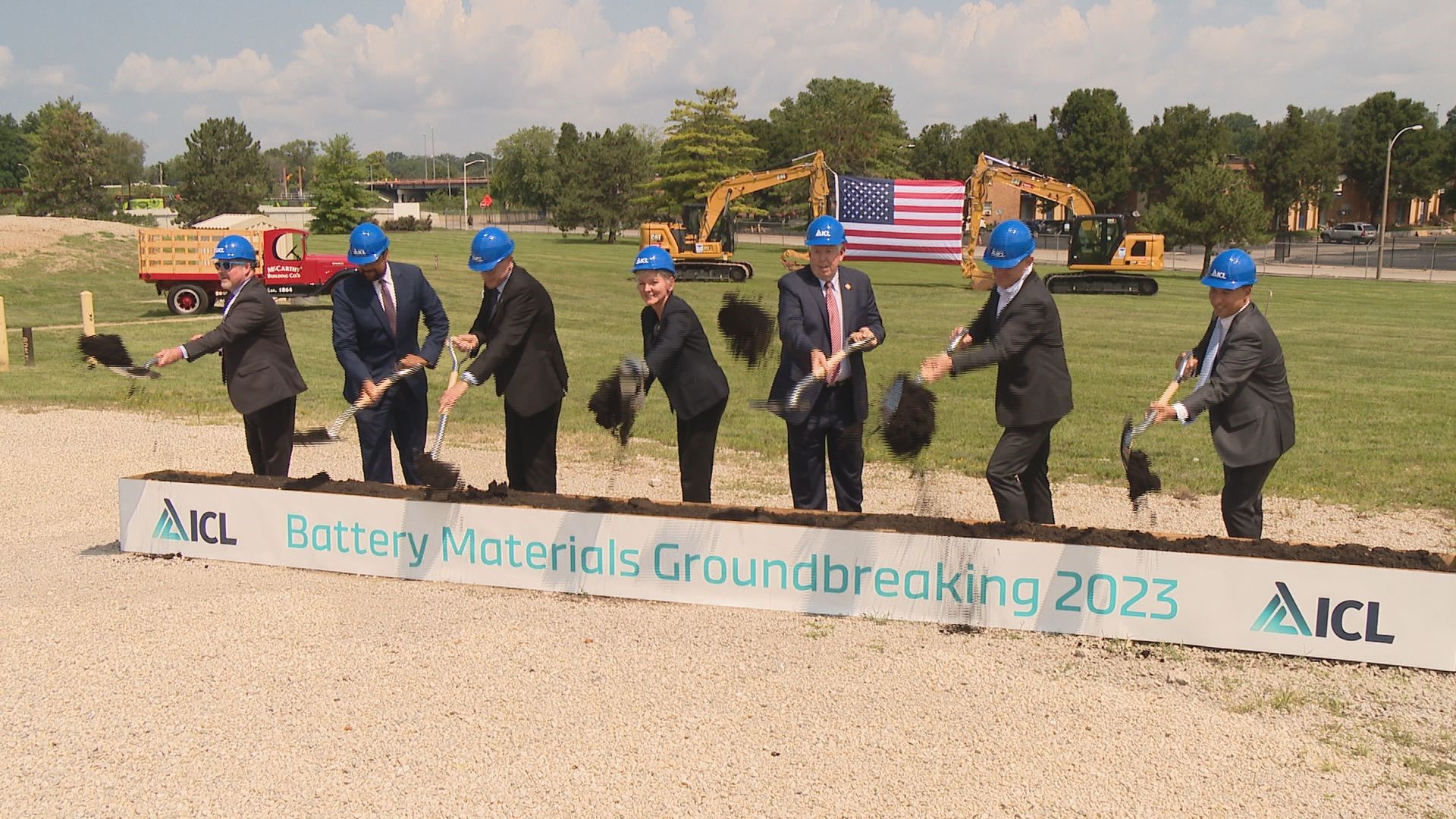ST. LOUIS, Missouri — Hundreds of union laborers will soon start to build a $400 million manufacturing plant in south St. Louis that officials claim will become key to the country's push to compete with China for a larger share of the electric vehicle battery market.
U.S. Energy Secretary Jennifer Granholm joined Missouri Governor Mike Parson at the ceremonial groundbreaking event at ICL's Carondolet campus on Tuesday morning to highlight the federal government's $197 million investment in the facility.
"Up to this point, globally, China has had a market on this," Granholm said. "Strategically, their country decided, 'We're going to corner the market on a number of these clean energy technologies, including the battery and the supply chain for the battery.'"
Granholm said the St. Louis manufacturing plant, which is slated to open in 2025, will play a key role in growing new jobs, powering cheaper electric vehicles, curbing carbon emissions, and fostering American energy independence, all of which she said were signs of a "manufacturing renaissance" in the U.S.
"We do not intend for any one country to monopolize supply chains which threaten our energy security," Granholm said. "I think [China is] watching all that is happening here in the United States very closely because they see that where we are coming after this whole supply chain."
ICL, an Israeli specialty minerals company, announced plans to partner with Aleees, a firm in Taiwan, to build the supply chain for the lithium iron phosphate materials that will power electric vehicle batteries.
Parson pointed to infrastructure upgrades and workforce development improvements as selling points that helped attract the overseas company to break ground in Missouri.
"Those things are a significant impact when you're trying to consider businesses to come to your state and you've got to compete with all the other states," Parson said.
Granholm, former Michigan governor, said it can be tough for a state to lure a corporate project of this scale on its own.
"When I was governor, I felt like I was bringing a knife to a gunfight, because I go to these other countries and they all had strategies with their federal government to be able to lure these companies," she said. "And we didn't have that. We had state tax incentives. But when you're competing your state tax incentives with China, it's really hard, especially when the labor rates in other countries are so low."
Granholm said the funding for the new battery materials plant came from the bipartisan "Build Back Better" infrastructure plan.
At a separate event in North St. Louis, Granholm credited the same piece of legislation for multiplying weatherization funds ten-fold to help the Urban League of St. Louis insulate homes and drive energy bills lower for people living in or near poverty.
"The federal government sent to Missouri an additional ten times what they would have," she said. "Normally on an annual appropriation, they would have gotten about $7 million to do weatherization, and now they have $77 million to do weatherization. So it's a huge ten-times expansion of what you all are doing."
In an awkward moment, Granholm errantly thanked U.S. Rep. Cori Bush (D-St. Louis) for supporting the legislation.
"Obviously, Congresswoman Bush voted for the bipartisan infrastructure law, which made that happen," Granholm said.
Bush quietly mouthed the words, "No, I didn't," and later offered this explanation for her vote against it: "The bipartisan infrastructure bill is a bill that I worked with, that I championed from the very beginning," she said, but, "We wanted the fullness of the bill."
She described her personal experiences witnessing poverty and said she couldn't ultimately support the final measure after some provisions were stripped out of it.
"So, it was not that I was not an advocate for the bill at all," she explained. "It was that I was an advocate for the bill, and I wanted the fullness, because Saint Louis deserves a full investment of everything that we can get from the federal government."

